How demonetisation will make an impact on Indian power sector?
By EPR Magazine Editorial February 4, 2017 3:33 pm IST
By EPR Magazine Editorial February 4, 2017 3:33 pm IST

Krishnan Rajagopalan, Head Solar Business, Anchor Electricals
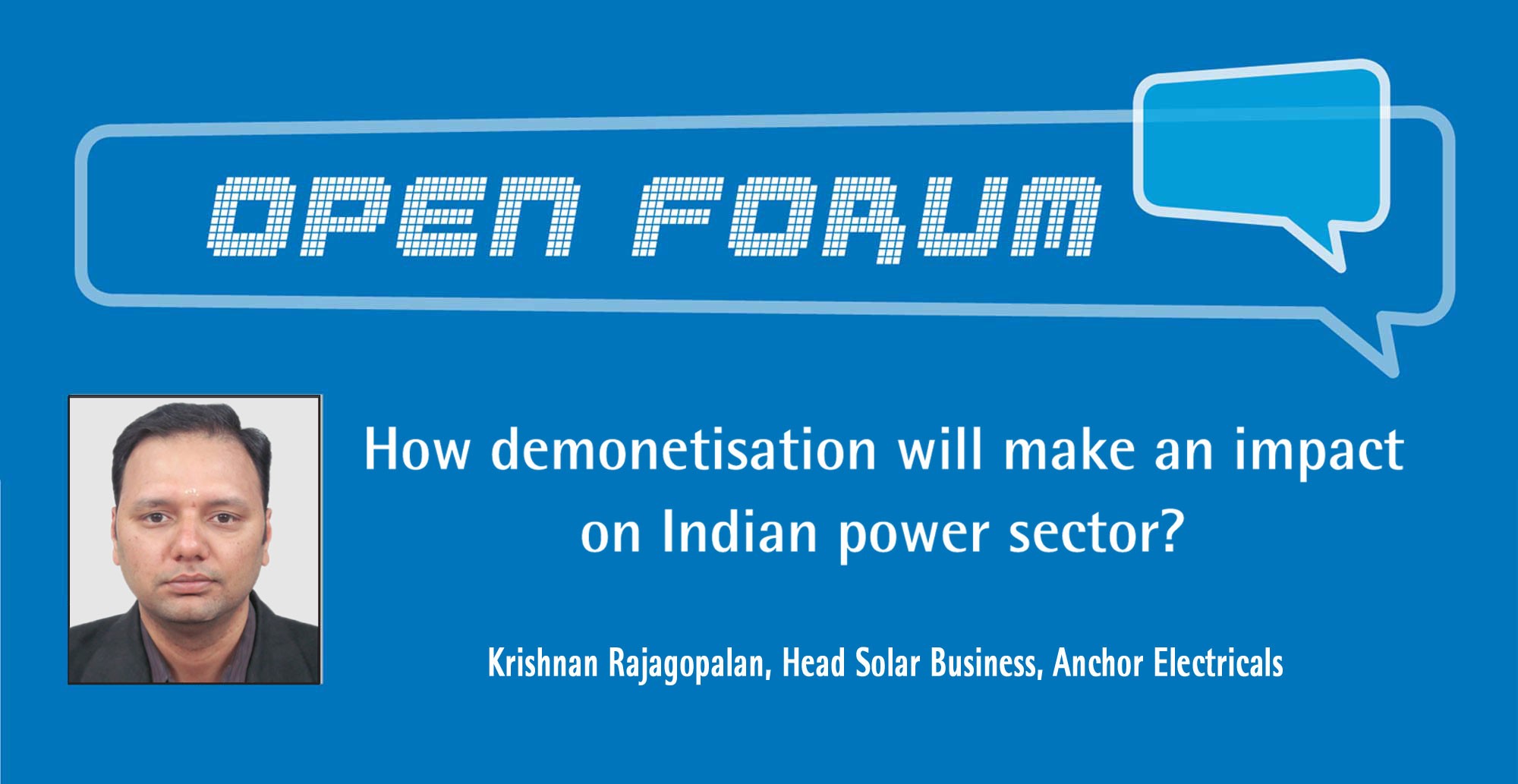
The Indian power sector comprises of large corporate, private equity players, foreign direct investors, individual business houses and small scale industries. Demonetisation was a strong move from the present government to instil transparency and quality in the financial system. At an organisational level the move does not impact directly, however it will slow down the momentum in the unorganised sector. While initially it may create some slowdown, we expect the market to stabilise over the next two to three months, as the nation gears up for the budget. We also feel it was the government’s strategic decision to rule out the miscreants in bureaucracy as well. This indirectly fuels more accountability and lends an indirect thrust to the Digital India Initiative as almost all transactions that were done in the present by cash will now move towards electronic transfers making it more effective to penalise the tax defaulters as well. While the overall green energy and renewable sector will see a slow down for products in solar- and wind-powered energy segments on a short-term, the move will eventually aid in building sustainable enterprises on a long term in the country.
___________________________________
Sanjeev Ranjan, MD, International Copper Association India
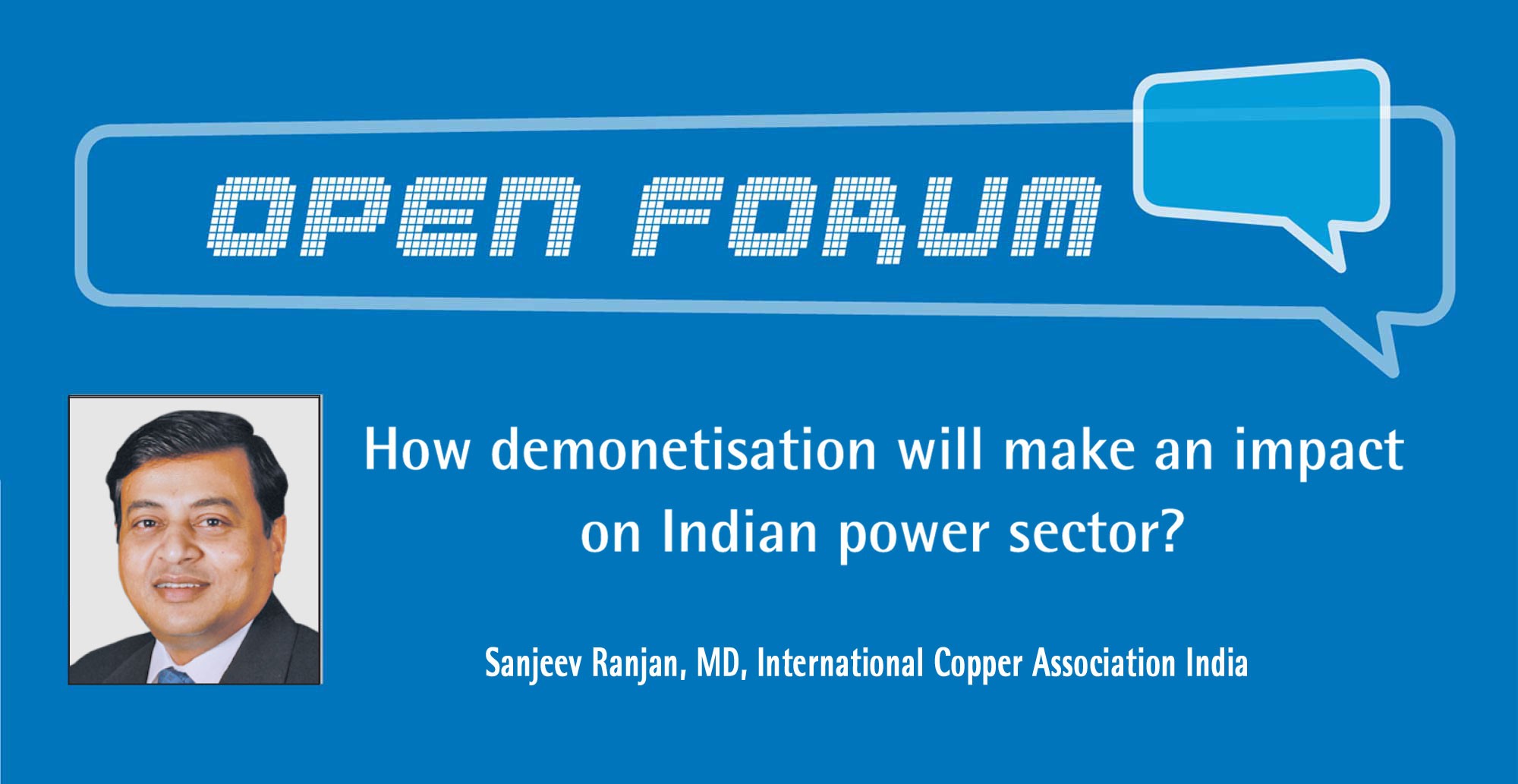
India is on a trajectory of double digit growth in the next few years. We do believe that the current demonetisation exercise is a step which will help cement this. We might face few hiccups as the government takes steps to further streamline the growth by making it more inclusive and formal. We strongly believe that several initiatives like 24×7 electricity access for all, emphasis on rural electrification, move to a more digital economy, smart cities, and growing urbanisation have brought the Indian power sector at a very interesting point of growth. The hunger for growth can only be satiated by well thought out investments by the entire value chain – utilities, equipment suppliers and manufacturers. Well and truly the onus has now shifted to the industry for taking it forward to next stage of growth by leveraging the government investment and participating in the India growth story.
___________________________
Rajiv Kumar, Director – Marketing, ES – India, Eaton Power Quality
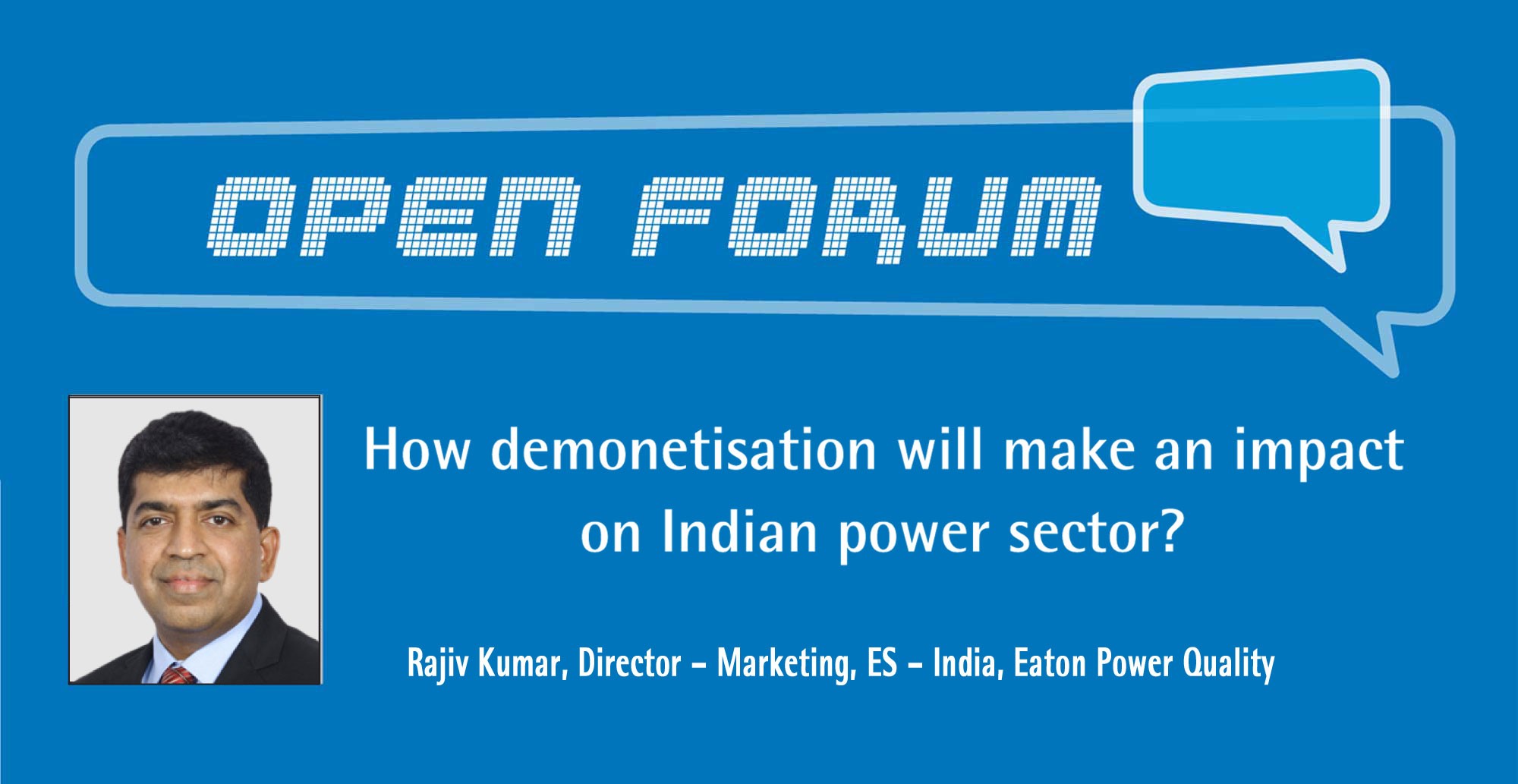
With demonetisation, the cash deposits at the financial institutions have significantly gone up. This should have a downward impact on the loan interest rates making the cost of capital attractive for investment in the power infrastructure projects. Also with the demonetisation guidelines allowing utility bills to be paid using the old Rs 500 and Rs 1,000 notes (prior to the Dec 31st deadline), DISCOMs should be able to collect a good portion of their long-standing unpaid bill. This incremental revenue should help fund any power-infrastructure improvements at the DISCOMs – that had been held up due to fund shortage.
Dr Sanjiv Kawishwar, Sr Vice President, ReGen Powertech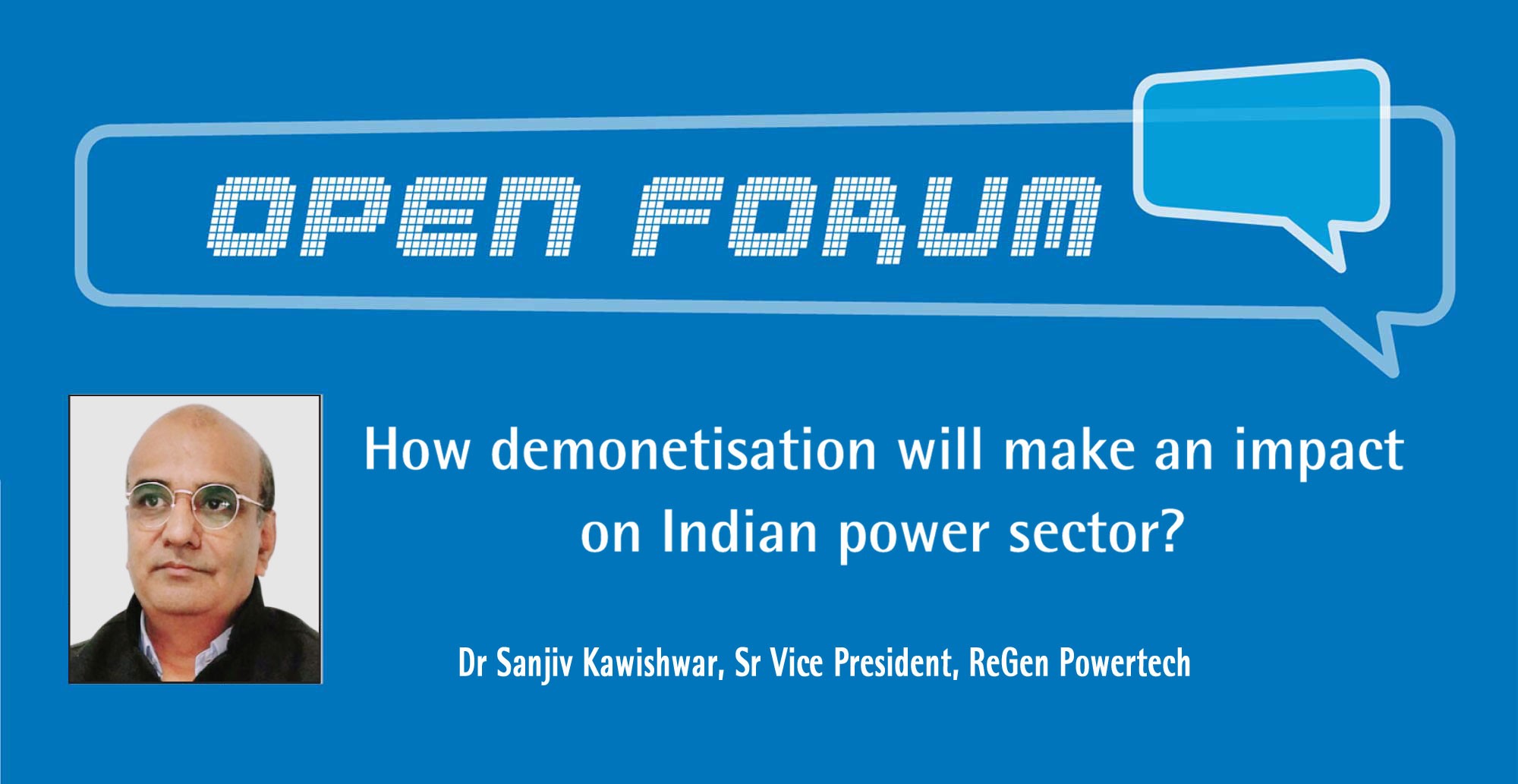
Demonetisation is set to have a long term benefit in the renewable energy sector in terms of reduction in cash transactions involved in various project approvals, liaison work and movement of material. Enhanced accountability and transparency of processes will improve “clean transactions for clean energy”.
_________________________________
P Ramnath, CEO, Sterlite Copper
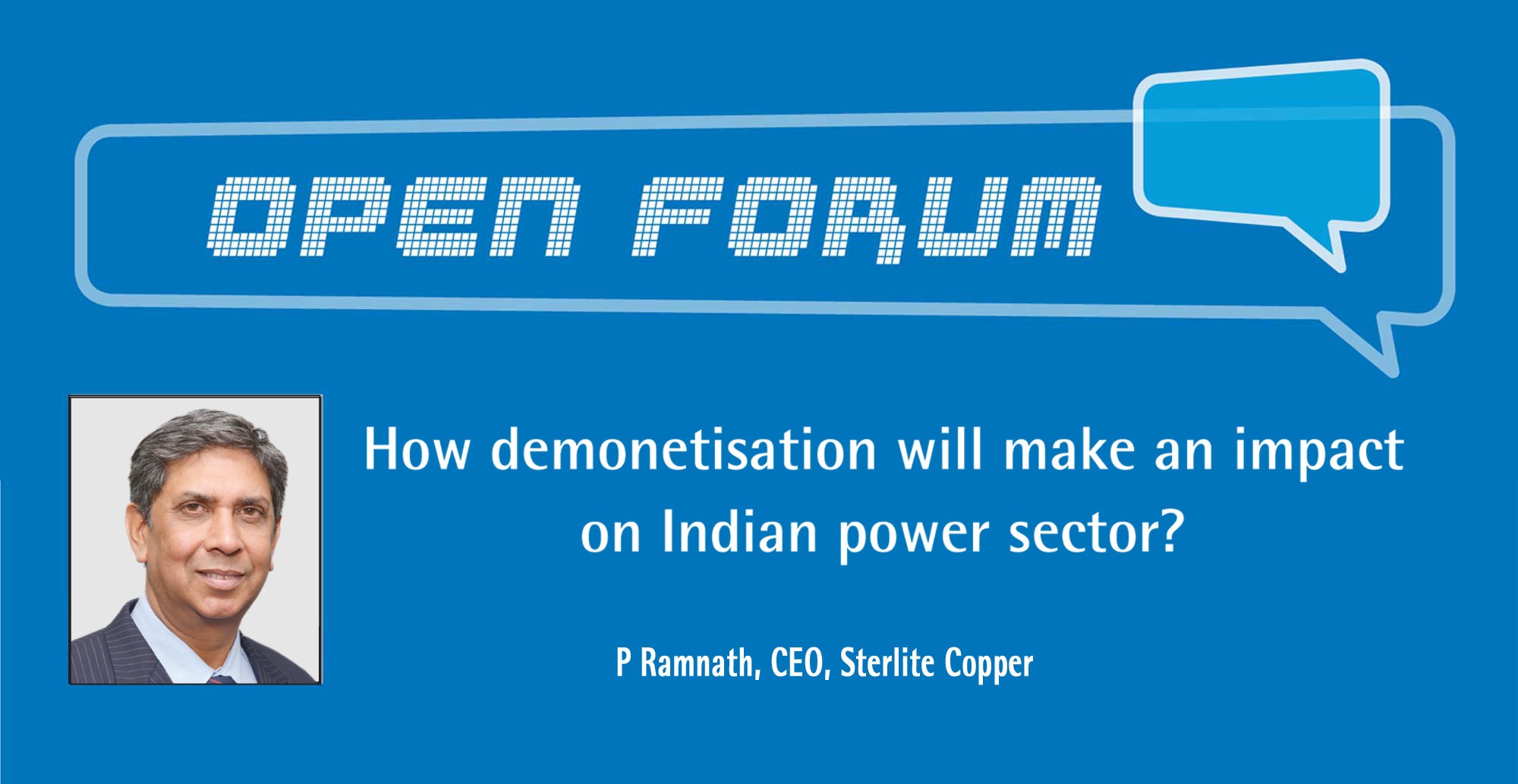
We supply copper for wire and cable industry where a lot of sales happen in cash in the retail sector. This is certainly affected due to cash crunch post demonetisation. The overall sales maybe hit by 20 per cent. We expect that in next couple of months when the things stabilise and the newer modes of payment come in to vogue, the anomaly will get stabilised and we will be back to normal.
We use cookies to personalize your experience. By continuing to visit this website you agree to our Terms & Conditions, Privacy Policy and Cookie Policy.